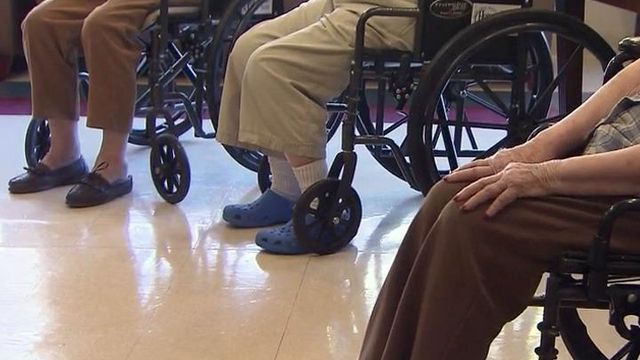State funding to keep NC group homes open through January
State officials said Tuesday that they have freed up $1 million to allow people with mental illness or developmental disabilities to stay in group homes across North Carolina through the end of January.
Posted — UpdatedA change in federal rules means that, as of Jan. 1, group home patients are no longer eligible to receive Medicaid payments for personal care services, such as assistance with bathing, feeding or other daily chores. The loss of funding puts the homes that rely on that money at risk of closing.
Federal regulators pushed the changes to ensure the same personal care eligibility standards exist for people no matter where they live, instead of having rules that may steer people toward institutional care.
Budget changes approved last summer set aside $39.7 million to help adult care homes with similar issues involving Medicaid reimbursements for personal care services. But the language of the bill means that group homes, which often hold six to eight residents, don't qualify for the money.
Gov. Beverly Perdue vowed last month that the hundreds of group home residents wouldn't be forced out into the streets, and Secretary of Health and Human Services Al Delia said Tuesday that money left in his budget will make good on that pledge.
"We must do something quickly so that our most vulnerable citizens are not starting a new year homeless," said Delia, who announced the plan because Perdue was sick and unable to speak.
Perdue can't legally shift money in the state budget unless a court order or an emergency requires it, but Delia said she is allowed to use one-time funds to make up for "unforeseen events," such as the imminent closure of group homes because of a budget mistake.
The $1 million would be enough to pay for housing assistance for the group home residents from Jan. 1 to Jan. 31, he said. The residents remain ineligible for personal care services payments, but lawmakers can help group homes transition through the loss of those funds next year.
House Speaker Thom Tillis asked Perdue to call lawmakers back to Raleigh for a special legislative session to address the problem, but Delia said Senate President Pro Tem Phil Berger balked at the move, saying lawmakers could deal with it when they reconvene in late January.
"The end of January is too late for many of these individuals we are concerned about," Delia said at a news conference. "Their homes will already have closed, and they will already be out on the streets. That is simply unacceptable to the governor."
Advocates for the disabled said that the short-term solution might not be enough, noting lawmakers would have two days after they reconvene on Jan. 30 to approve a more permanent solution.
"The clock will once again be ticking, and that’s a scary thing," said Deby Dihoff, executive director of the state chapter of the National Alliance on Mental Illness. "They’re going to have to alter their legislative schedule."
Barbara Dudley, who runs a group home in Raleigh for women with developmental disabilities, said all six of her residents need assistance with bathing and dressing. They wouldn't be able to survive on their own if she were forced to shut down because of financial straits.
"I don't know where they would go. There is nowhere for them to go," Dudley said.
Delia said DHHS had the $1 million left in a fund for the North Carolina Housing Finance Authority, so it was available for housing assistance for group home residents.
The funding doesn't address a similar problem for 3,000 to 4,000 people with Alzheimer's disease who live in adult care facilities, he said. The federal government is pulling 40 percent of its funding from adult care facilities under new Medicaid rules.
DHHS requested a waiver from the federal government that would prevent Alzheimer's patients from losing Medicaid benefits, but it was denied last week.
The state plans to request that the government continue its current reimbursement rates for several months while patients appeal the changes, Delia said.
• Credits
Copyright 2024 by Capitol Broadcasting Company. All rights reserved. This material may not be published, broadcast, rewritten or redistributed.






